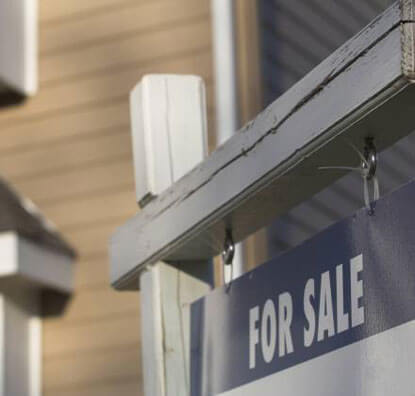There are major developments in the American Bar Association v. United States Department of Education case registered as 1:16-cv-02476 in the U.S. District Court for the District of Columbia.

What is American Bar Association v. United States Department of Education About?
After three years of discussions and debates, the U.S. Department of Education has finally agreed to recognize all full-time American Bar Association employees as public service workers. As a result, they’re now eligible for student loan forgiveness programs.
The original lawsuit accused the education department of the poor administering of the Public Service Loan Forgiveness program.
This settlement, in addition to a previous court judgment, demonstrates that the federal government will not have the power to change the rules that concern the case.
What Does It Mean?
Full-time American Bar Association employees who have borrowed money will have the option to have their federal student loans forgiven with the help of the public service loan forgiveness program. They must have made at least 120 qualifying payments to qualify for the program.
Since one needs to be employed for at least 10 years in order to make 120 qualifying payments, the Department of Education created the Employment Certification Form, also known as the ECF, in 2012, to help applicants.
Borrowers have the option to use the form to determine if they qualify for the forgiveness program based on the length of their tenure and the number of loan payments.
There are presently about 3.9 million ECFs and two-thirds of them have been approved according to the latest figures.
What Triggered the Lawsuit?
The ABA filed the lawsuit in December ‘16 after the Department of Education notified a group of four ABA employees that they were no longer eligible for the forgiveness program after previously receiving approval.
The Department of Education illegally reversed their prior eligibility after informing them that the payments they had made were no longer qualified.
Employed by the American Bar Association, a non-profit organization, these employees work to improve public defender systems and provide legal services to unaccompanied immigrant minors and disabled veterans.
The employees had made major decisions based on the previous approval. They had accepted low-paying jobs with the belief that it would help them qualify for the program.
The 2016 change in the education department’s interpretation of these rules affects more than 1.5% of borrowers pursuing the loan forgiveness program.
The Bone of Contention
The issue largely centers on what makes a job eligible for the program.
Here’s the definition of a public service job as defined in the Higher Education Act of 1965 [20 USC 1087e(m)(3)(B)]:
“a full-time job in … public interest law services (including prosecution or public defense or legal advocacy on behalf of low-income communities at a nonprofit organization), … or at an organization that is described in section 501(c)(3) of title 26 and exempt from taxation under section 501(a) of such title.”
The Department of Education took a bold step and limited public interest law services to “borrowers who work for a 501(c)(3) organization with a public interest law as primary purpose”.
Despite being a non-profit organization, the ABA enjoys tax exemption under section 501(c)(6) and not section 501(c)(3).
However, the definition refers to the employer as a not for profit organization and not a 501(c)(3) organization. Experts argue that Congress would have chosen different words had it wanted to limit public interest law services to only the employees of 501(c)(3) organizations.
Thus, the wording doesn’t support the department’s interpretation.
In addition to this, the education department failed to follow the procedure when changing its interpretation of the law. It didn’t provide borrowers with advance notice. Plus, it did not have the statutory authority to bring a retroactive change in the interpretation of the law.
What Does the Court Say About American Bar Association v. United States Department of Education?
The court gave the verdict on February 22, 2019.
In the words of District Judge Timothy J. Kelly, “The Department of Education acted arbitrarily and capriciously” when it decided to change its interpretation of the law related to the public service loan forgiveness program.
He also said that the “department didn’t display awareness of its changing position, provide reasoned analysis for that decision, and take into account any serious reliance interests affected.”
The judge was very vocal and called counter-arguments “nonsense”, and agreed that the denial “had an immediate and significant impact on their [the borrower’s] ability to plan their careers and finances.”
The judge vacated the department’s new standards and gave a judgment in favor of three of the four employees.
The education department did not challenge the court’s ruling and decided to restore the employee’s eligibility for the forgiveness program.
ABA and Education Department Settles the Score
The ABA filed an appeal to challenge a part of the ruling that denied the organization’s rights as a qualified public service firm. The same ruling denied the fourth borrower’s eligibility.
On February 18, 2020, the Department of Education sent a letter to the ABA in response to this appeal and the two parties reached a settlement.
The letter said that “full-time ABA employees are employed in a public service job with a public service organization, and therefore are eligible for student loan forgiveness under PSLF.”
ABA Executive Director Jack Rives appreciated the decision and said:
“We are pleased the Department of Education now fully accepts providing loan forgiveness to many people who rightfully earned it. Without the dedicated public service of so many attorneys, our nation would not be able to provide services to those in need. Student loan forgiveness is a small but very meaningful way to repay young people who spend 10 years of their lives in lower-paying jobs to serve the public.”
Ropes & Gray represented the ABA and four public servants. Chong S. Park, one of their partners, said:
“After years of financial uncertainty, these dedicated, service-oriented professionals finally got the fair shake they deserve from the Department of Education. We are very pleased with the positive impact this has for our individual plaintiffs as well as other student loan borrowers in similar positions.”
This major case shows that the federal government doesn’t have the power to retroactively change the regulations regarding public service loan forgiveness. It benefits borrowers who work for nonprofit employers in public interest law.












































